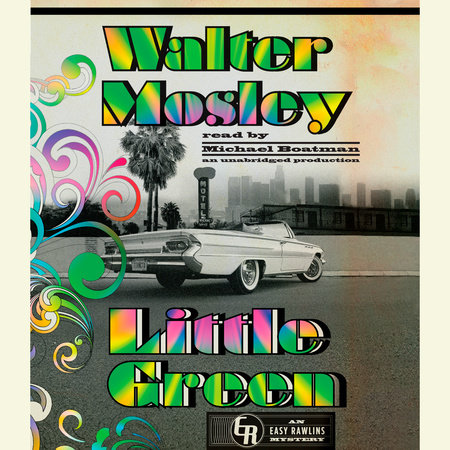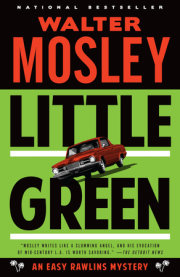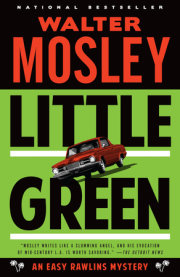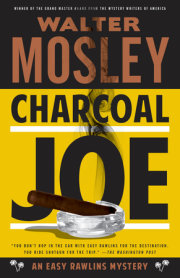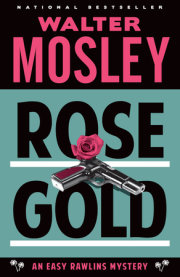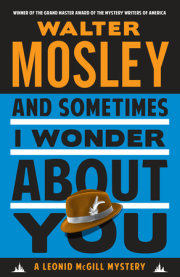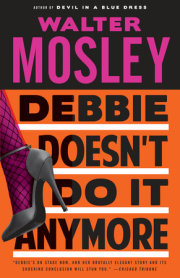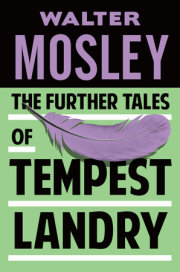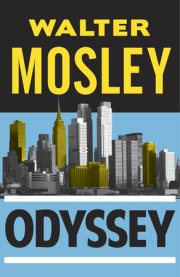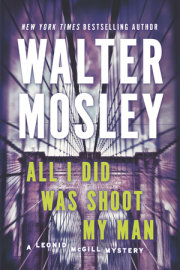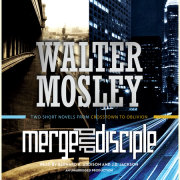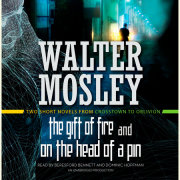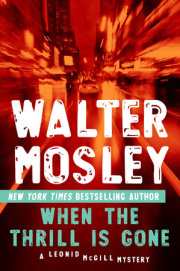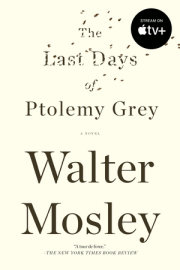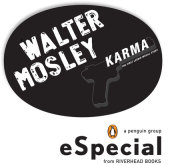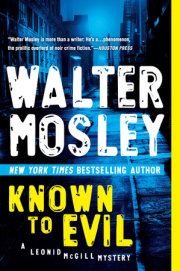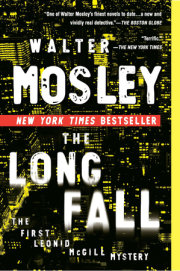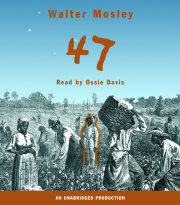1
I came half-awake, dead and dreaming. My eyes were open but I couldn’t focus on anything because I was still falling, as if the nightmare had followed me from sleep into the waking world. I didn’t know where I was or where I’d come from. But the bed under me was turning and falling and I, I was sure, had perished. This sensation was so real, so palpable that I closed my eyes and moaned. The movement of the bed then took on a temporal quality; instead of falling I had become unmoored in time: traveling backward and then forward through a life that was mine and yet, at the same time, foreign to me.
I watched my mother dying in the bedroom of our shanty house in New Iberia, Louisiana. She was laid up in a feather bed, a big woman who was trying to catch her breath but couldn’t inhale right. It sounded like she was drowning. She was so pretty, I thought. I had once loved her but could no longer raise this feeling in my heart. I might have even smiled as she shuddered under the labor of simple breathing.
Then I tumbled into a boxcar peopled by brooding and silent black men. They stared at the boy and he saw from their point of view a scared eight-year-old orphan child looking for companionship in those angry, bloodshot eyes. I was no longer that kid but had become those men who couldn’t care about another defenseless child orphaned and destined, probably, to die. I saw myself and wondered, almost idly, if that young son would live to the end of the line.
I was surprised to see that he had made it to Fifth Ward, Houston, Texas. Stealing oranges, skulking in back-alley corners, asking everyone he met if they knew a name--Martin. “My grandfather,” he said. He’d learned to speak up and stand straight. He already carried scars that would follow him through life but he found his grandfather: a hard man who allowed him to sleep on the outside front porch at night.
Time picked up speed after that. In an instant the boy, Ezekiel, was a young man, a fool who signed up for the army, for the war. He passed through North Africa, then Italy and France. He fought men and killed them out of reflex and fear. He liberated a concentration camp, a killer opening the gates for the dead and the dying and those left with the image of death permanently imprinted on their souls.
I was dying, no, had died.
Returning to Houston, the man, no longer weak or afraid, found that most of his friends in that part of town were deceased. Renfro had been slaughtered by a jealous woman named Theresa who in turn died from alcohol poisoning. Martin killed a white man and then shot himself in the burning shack where the boy had slept on the porch. Minna Rogers, Delphine Montesque, Michael Michaels, Big Boy Sanders, and dozens of others, all died while the boy-turned-man had survived the greatest war in history.
“Easy?”
There was a flood rising in the room that was swathed in darkness. My right ankle was shackled to the floor next to the bed, and the water was already up to my ears. I pulled against the chain but all that did was cause me pain. My ankle hurt like a motherfucker and the chain would not give. I tried to rise, hoping that I could float to the extent of the bond, that maybe I could keep my nose above water, but I knew somehow that my luck had run out, that Death had come in on me while I was distracted by the mountains of evil I had lived through. Just the fact that I could survive such terror made me guilty, and now he was coming up through the floorboards like he did for my mother.
Death. I had followed him through all the years of my life as he dropped bodies in my path as little reminders to me and others that the end of the road was no bed of roses, no kingdom come. It felt as if my whole life was an obstacle course, a slogging journey trying to catch up with Death, trying to get a good look at his face. . . .
“Easy.”
And then, up ahead, on my journey through a past life that no longer belonged to me, I saw his back; the Reaper was right there in front of me, carelessly firing a pistol into the night. I could reach out and touch his shoulder. When I did this he grunted and turned and I realized that I knew this being, this deadly force that had dogged me from the earliest moments of my life.
He was well dressed for any occasion or epoch. Smiling with a gold tooth that had a diamond embedded in it, he was a colored man, not black but light-skinned and light-eyed. A brother who had littered the road I traveled with so many dead that even he had lost count.
“Easy.”
His lips didn’t move but I recognized my name, my true name, not the one my dead father gave me. Raymond Alexander, known as Mouse to his victims and friends alike, smiled at me and I shivered in pleasure and fear.
“Ray,” I said, and his smile slowly diminished.
He stared at me and shook his head. I almost cried but then I remembered who I was and what I’d been through.
“No, man,” I said. “You can’t dismiss me like some schoolkid. You can’t turn your back on me after all these years.”
He smiled again, and even though I was dead I felt elation. This emotion was followed by the sense of falling again. There was a broad ocean rippling gently under a partial moon and the execution of a perfect accelerating arc of plummeting downward. A shackle was affixed painfully to my right ankle but, impossibly, Mouse was still standing there in front of me, his expression daring me to do something about the fix I was in.
“You expect me to fly, motherfucker?” I yelled.
Mouse laughed without sound and nodded at me.
“Easy, wake up.”
The command was feminine, a nuisance that somehow carried weight. The panorama of my hallucinatory journey called to me. I wanted to go off with Mouse, to follow the long line of dead black folks, soldiers, and Jews. I wanted to join the people I killed and the ones I couldn’t save. I wanted to shed my scarred and pain-riddled body. One more breath seemed like too much to bear.
“Easy, it’s time for you to wake up.”
I tried to open my eyes but I was a child again, a slave to sleep, needing just two more minutes of rest. But a hand shook my shoulder and little aches came awake through my upper torso and down my spine.
It was this pain that opened my eyes.
I could see after a fashion but my vision wasn’t proper yet. I couldn’t get a bead on the room I was in, but the beautiful Asian woman sitting beside me on the bed was clear and present as a Catholic priest preparing to give last rites.
Instead of incense there was a mild floral scent of perfume.
“Lynne?” I said. My voice was hoarse and congested, cracking hard enough that I thought my throat might bleed.
“I didn’t think you were ever going to wake up, Easy,” the Chinese bit-part TV actress claimed.
“I died,” I said.
She almost responded but then moved to a chair next to the head of my bed.
Copyright © 2013 by Walter Mosley. All rights reserved. No part of this excerpt may be reproduced or reprinted without permission in writing from the publisher.

